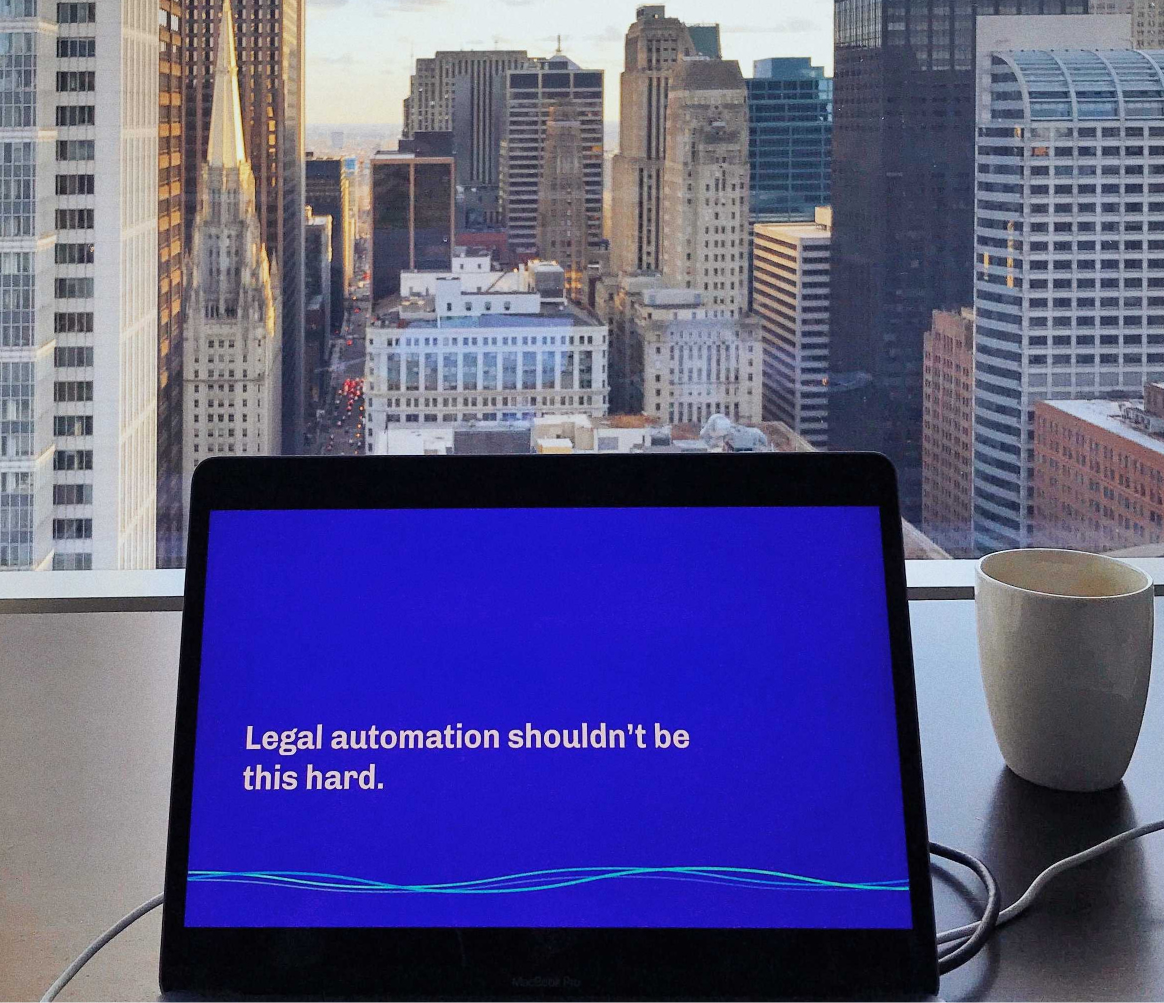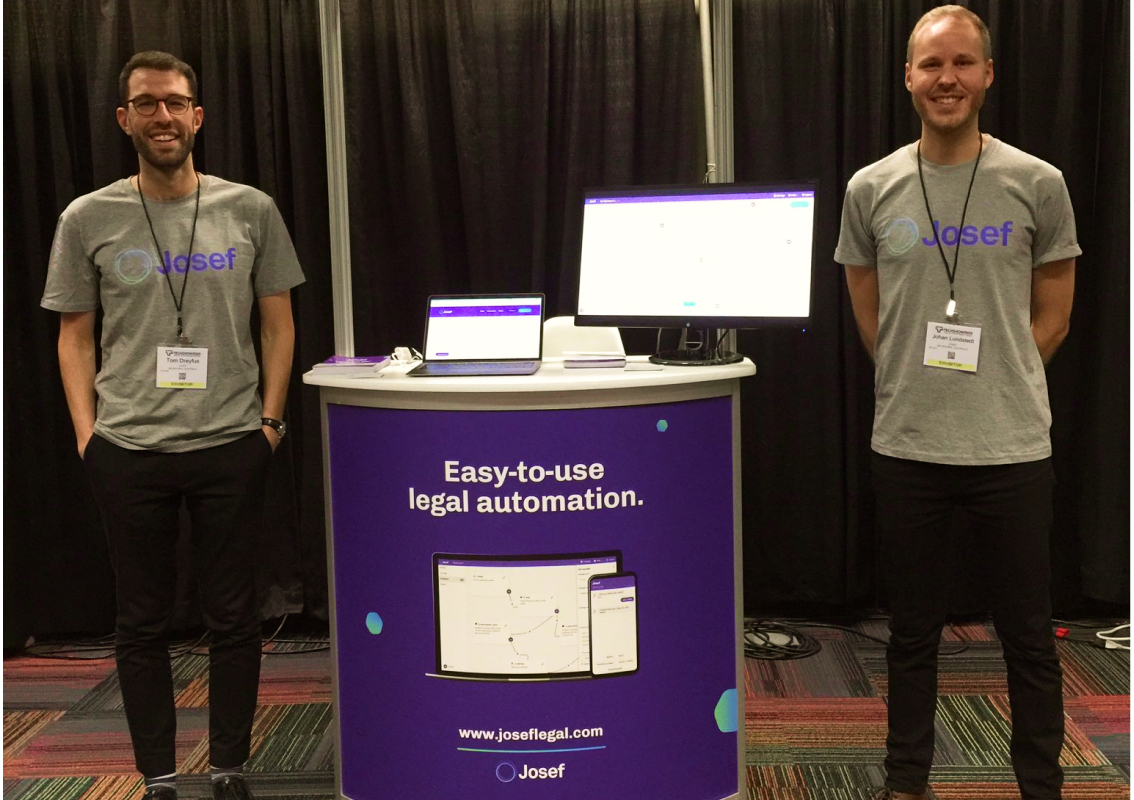Josef at the ABA Techshow 2020
The Josef team spent two days at the ABA’s flagship technology and innovation event: Techshow 2020. Here, we share what we learned.
Over three wintry days in Chicago, the ABA Techshow 2020 brought together the best of global legal technology, and some of the stars of the legal innovation world.
From Mary O’Carroll, Director of Legal Operations at Google, to Matthew Stubenberg from the Harvard Law School A2J Lab, we were invited to imagine the future of legal work. As a first-time exhibitor, there was so much for Josef to learn!
Here are our top takeaways.
The start-ups are alright
Opening night saw Josef on the main stage, pitching in the ABA Techshow 2020 Start-up Pitch Competition.
It was inspiring to see the quality of the start-ups on stage. From a workplace wellbeing app to an AI-driven court date notification system, each start-up told a compelling story of how they solved a real problem for law firms.
Josef’s take? That legal automation shouldn’t be this hard, especially when no-code platforms like Josef make workflow, process and document automation accessible to even the most technophobic lawyer.

Josef's key message for the attendees
But aside from the competition itself, this was our first experience of what seemed to be a genuine and shared belief that the rising tide of legal technology would lift all boats, start-ups included. This feeling persisted throughout Techshow, and made for a real sense of community.
Small law is big business
So much of what we hear about legal technology and innovation comes from the world of BigLaw; multinational firms, corporate teams with hundreds of in-house counsel and top law schools looking to make their mark.
But the attendees at Techshow 2020 were, for the most part, from the smaller end of the legal services market. And as it turns out, small law is big business! There are more than 1.3 million lawyers in the United States, and the majority of them work in small and local law firms.
This constituency was there to flex their muscles. Scanning the exhibit hall for a new practice management system or an updated payment portal, they were curious, engaged, and keen to explore new ways of doing old things.
What do they care about most? Building sustainable businesses, and making it easier for their clients to get access to the help they need. For small firm lawyers, client-facing automation — like the Investment Hub built on Josef by LUNA — presents opportunities to increase both their own revenue and the accessibility of their services to clients.
The future of legal education is here
Scattered among the crowd were a group of academics and law school faculty eager to explore new opportunities to collaborate with legal tech companies.
Too many of them expressed frustration with the approach of legacy tech platforms to legal education. Their complaint? That these companies were too focused on the marketing opportunity of partnering with a university, and not focussed enough on the students or the positive impact that their projects could have on the community. And their own law schools, they said, were resistant to the changes sweeping the profession.
Yet they were some of the most excited people at the conference. The academics we spoke to were inspired by the work that Josef is doing with Swinburne and Melbourne Law Schools, along with the Open University and the National University of Ireland, Galway.
At Josef, we care deeply about equipping law students with the skills they need for the future of legal work and a client-centred profession. We came away certain that American law schools are our next frontier.

Tom and Johan manning the booth!
In a crowded market, Josef stands out
Perhaps it’s the fact that everything Josef is purple, or maybe it’s just that our user interface is so visually appealing, but I lost count of the number of times someone came up to us to offer a variation on “What you’re doing is really cool!”.
The more legal professionals we spoke to, the more certain we became that enabling the content producers and subject matter experts to build and control their own automation tools makes sense.
Lawyers’ eyes lit up when they saw our no-code flowchart and easy-to-use document automation editor, their minds turning towards all of the opportunities they presented.
